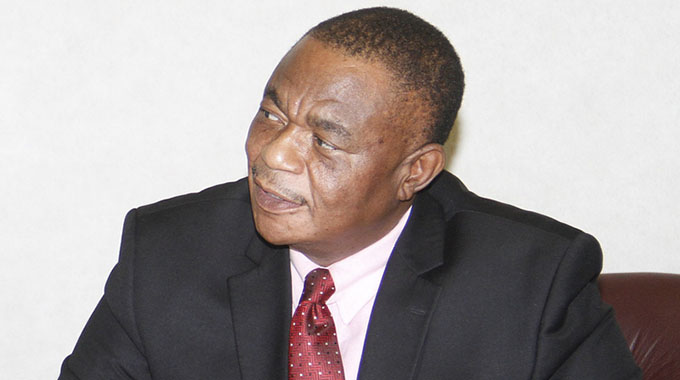The importance of accountability

Sharon Hofisi Legal Letters
The shootings that occurred in Harare where six civilians lost their lives clearly show that accountability means a lot for Zimbabweans. Ideally, the Zimbabwean tradition demands that people must acknowledge their wrongdoing; should apologise and put things right. This is especially so where innocent lives are lost in unclear and polarised circumstances.
The sanctity of life demands that issues of transitional justice are taken seriously. Effective judicial or non-judicial ways of ensuring that serious human rights violations are should be designed.
There has been coverage in both the State and private media on whether or not the soldiers were ordered to shoot at the civilians who were allegedly protesting against the Zimbabwe Electoral Commission’s delays to announce the presidential results. Without clarity as to what actually went wrong, transitional justice will remain elusive in Zimbabwe.
Let me deal with how Zimbabwe can deal with the sad event using the International Centre for Transitional Justice’s (ITCJ) guidelines. Firstly, accountability demands that a society deals with a multiplicity of victims, perpetrators and crime sites. The deceased are now known and possibly the areas where they were shot have been identified.
We are still to be appraised on whether there was military necessity to warrant the use of lethal force. Most importantly, there have been reports that the Zimbabwe Human Rights Commission (ZHRC) is probing the army in relation to the shootings.
The involvement of the ZHRC is important in the interests of justice and democracy.
This is because ZHRC is one of the fourth space or national human rights institutions (NHRIs) which can contribute to the realisation of transitional justice in a society dealing with a grim situation.
At a normative level, the ZHRC can achieve this aim using the broad constitutional mandate on Chapter 12 commissions to ensure that injustices are remedied.
Under international law, the ZHRC can investigate the circumstances using guidelines from the United Nations Guidance Note on how NHRIs can deal with transitional justice issues in a society.
Further, it is encouraging to note though evaluation of media reports that the National Peace and Reconciliation Commission (NPRC) has been engaging various stakeholders in the peace-building sector in the post-election period. I argue here that the NPRC’s involvement is very important since it has direct constitutional mandate to deal with post-conflict situations.
While the NPRC may investigate what actually transpired during the shootings, there is urgent need for it to engage Government and civics as well as families of the deceased so that it designs an effective post-conflict strategy for peace and reconciliation in the Zimbabwean society.
A reconciliation dimension to transformative justice is crucial in a seemingly convoluted crisis where blame shift seems to be derailing the realisation of proper peace in Zimbabwe. It is hoped that the spirit of unity that largely engulfed the pre-election period must encourage the State functionaries, and opposition political parties to strive to build bridges that will make transformative justice for victims and their families realisable.
Whether it is the NPRC, the ZHRC, or any other institution such as the National Prosecuting Authority (NPA) or the police, which may deal with the investigation of the shootings, due regard must be given to the second consideration from the ICTJ that there must be a systematic, planned nature of the violence and who was responsible for it. This aspect will ensure there is closure on who ordered the shootings to be carried out.
Thirdly, the ICTJ envisages a situation where a society carries out multi-disciplinary investigations and collect evidence. There is nothing amiss for the State and other independent commissions or oversight institutions to work together in appraising the Zimbabwean community on the progress of the investigations. This is important is enabling the society to determine whether the shootings amount to “acts of the State” or not. It will also influence the course of action to be taken to bring finality to the sad episode.
Fourthly, the ICTJ appreciates that the process of promoting transitional justice is resource intensive.
The State and independent commissions must demonstrate that resources have been allocated towards effective investigation lest the exercise be regarded as a sham. Even commissions risk being labelled appendages of the State if they do not demonstrate this fact.
Lastly, transitional justice needs political will without politicisation. The powers that be must demonstrate that they are prepared to respect the constitutional rights of protesters. Even if it were to be found that the protesters did not act responsibly, the State should demonstrate whether shoot to kill was called for basing on such factors as the fact that some of the victims were not participating.
There have been reports that President-elect Mnangagwa promised to institute a commission of inquiry into the shootings. It is hoped that this step be pursued effectively so that no impression is created that there is entrenched militarisation of State institutions.
Hopefully, after the hearing of the presidential election petition, whoever shall be Zimbabwe’s PResident will show political will to deal with this situation.
This will go a long way in increasing a sense of security in our country; encourage a culture of truth telling and truth recovery, and also prevent prospects for revenge violence. Ultimately, Zimbabwe will be a beacon of democracy where proper peace and real reconciliation prevent a culture of impunity.
Sharon Hofisi is a UZ lecturer in administrative and constitutional law. Feedback: [email protected]









Comments